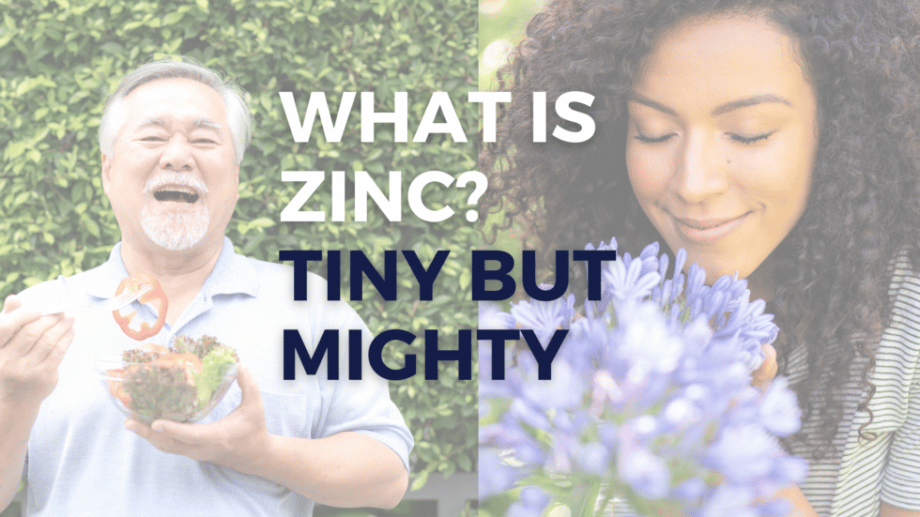Is it true that some of the most substantive minerals in our bodies function on the smallest doses? Well…YES! The amount needed does not reflect importance. Trace minerals support wellness. The second most abundant trace mineral—Zinc—shows their vitality.
What Is Zinc?
It is an essential trace mineral that functions as a cofactor and coenzyme in enzyme reactions. This mineral supports over 300 enzyme systems throughout the body.
Zinc & Our Bodies
This mineral resides in all human cells—found in the nucleus, nucleolus and chromosomes. It supports over 300 enzyme systems across the body, functioning both as a coenzyme and cofactor. Though the list below is not exhaustive, zinc supports the following processes:
- DNA: supports ribosomes, RNA and DNA structures
- Building Proteins: required for zinc-finger protein & protein synthesis reactions
- Cell Growth: supports enzyme systems involved in cell division
- Healing Wounded Tissue: supports every step of the wound healing process
- Immune Functions: crucial innate immune cell development—neutrophils & NK cells
- Taste & Smell: enzymes reactions that control these senses require zinc
Because of its presence in all cells—supporting cell structure and division—it supports hundreds of body processes. Zinc is a vital trace mineral.
For the average healthy adult, the recommended daily intake is:
- Adult Males: 11 milligrams/day
- Adult Females: 8 milligrams/day
This mineral can be consumed through a whole food diet. Natural sources include seeds, poultry and whole-grains. If you struggle to consume adequate amounts through your diet, consider supplementation! Supplementation is relatively common as deficiencies persist.
If you have concerns about your individual health, wellness and supplementation needs, reach out to your healthcare provider.
What Are Natural Sources?
Natural zinc sufficiency is often possible when consuming a well-rounded whole food diet. It is found in the following foods:
- Shellfish
- Legumes
- Seeds
- Nuts
- Whole-grains
- Asparagus
- Broccoli
- Avocados
- Pomegranates
- Raspberries
Quick Facts
- Zinc functions as a cofactor and coenzyme, supporting over 300 enzyme systems.
- What Is Zinc: trace mineral present in all human cells
- What Does It Do: involved in hundreds of enzyme reactions that support cell functions
- How Much Do I Need: average males—11 mg/day & average females—8 mg/day
- Natural Sources: seeds, poultry, broccoli, pomegranates and whole-grains

